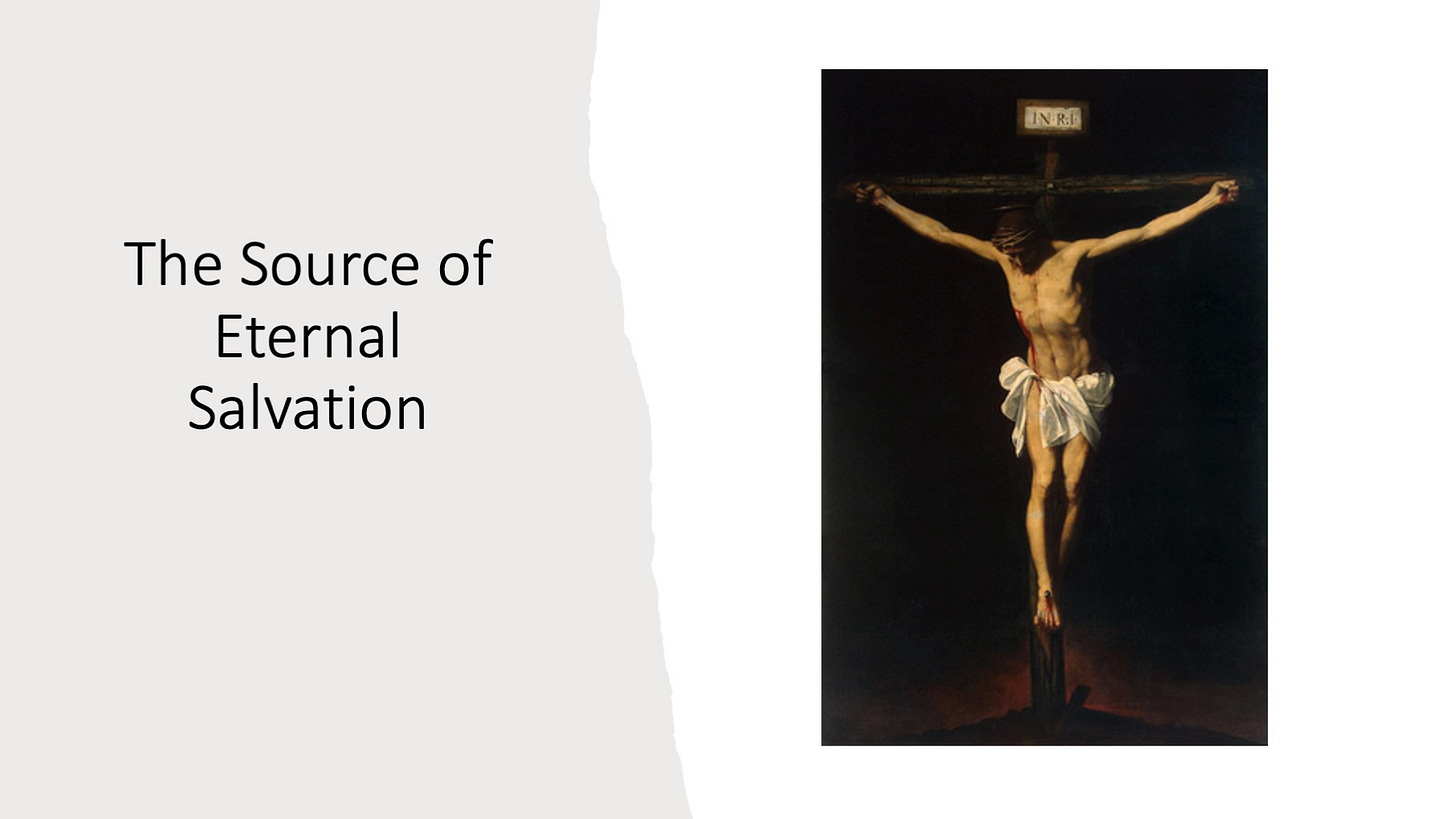Isaiah 52:13-53:12; Hebrews 4:14-16; 5:7-9; John 18:1-19:42
The first reading describes the suffering of God's servant and explains its salvific meaning. Since he did not sin (Is. 53:9; 1 Pet. 2:22), he suffers for the sins of others, and his suffering will justify many (Is. 53:11b). In that mysterious suffering servant, we immediately recognize the suffering Christ.
God was betrayed in the garden of Eden (Gen. 3:1-7), the incarnated Word of God was betrayed in the garden of Gethsemane (John 18:1-3), and the victory over sin and death has also happened in a garden (John 19:41). Jesus' confession "I Am" stands in opposition to Peter's denial "I am not" (John 18:17,25). But Peter is not the only one who denied the truth. Pilate condemns an innocent man to death (John 19: 12-16), and the high priests cry out: "We have no king but Caesar" (John 19:15; see Ps. 145:1).
Two high priests faced each other. One according to the order of Levi and one according to the order of Melchizedek (Heb. 5:10). The first was sinful, the second is sinless. The former falsified reality, the latter reveals the truth. The former says "it is better that one man should die for the people" (John 11:50), the latter explains the meaning of love as laying down one's life for friends (John 15:13). And yet, the high priest who paid tithes to Melchizedek through Abraham (Heb. 7:6-10) condemns to death the High Priest according to the order of Melchizedek.
"What is truth?" (John 18:38), asks Pilate standing in front of the truth (John 14: 6). Pilate was not a disciple of Christ, so he could not know the truth. Moreover, although he had the authority to release or to crucify Jesus (John 19:10), he was not a free man either (John 8:31-32). He was a slave to his sinful character and also to a political machine known as the Roman Empire. Yet unwittingly, he contributed to the evangelization of the empire proclaiming in three main languages: "Jesus of Nazareth, the King of the Jews" (John 19:19-20). Aramaic was the local language of Palestine, Greek was the lingua franca of the Roman empire, and Latin was the official language of that empire. And so people of different walks of life can come to Jesus, worship him and begin a new life (Matt. 2:2,11-12).
"Behold the man!" (John 19:5). The first man was created on the sixth day (Gen. 1:26), and the second man was disfigured on the sixth day (John 19:14): "his appearance was so marred, beyond human semblance, and his form beyond that of the children of mankind" (Is. 52:14). "Behold, the Lamb of God" (John 1:36). Jesus died on the cross at a time when the paschal lambs were sacrificed in the temple (John 18:28; 19:14). "Behold the man!" Adam fell into a deep sleep and a woman was formed out of his rib (Gen. 2:21-22). Jesus fell into a sleep of death and the bride of the Lamb has been ‘born’ from his pierced side (John 19:34). "Behold, the Lamb of God, who takes away the sin of the world!" (John 1:29). Blood and water flowing from Christ's side become the fountain opened for us to cleanse us from sin (Zech. 13:1). Jesus accomplished (John 19:30) the work that the Father gave Him to do (John 17:4) and "became the source of eternal salvation to all who obey him" (Heb. 5:9).
"And God saw everything that he had made, and behold, it was very good. And there was evening and there was morning, the sixth day" (Gen. 1:31). Joseph and Nicodemus buried the body of Jesus and the Mother of our Lord was taken home by Christ's beloved disciple. But, we know that it was not the end. "The gardener" is about to surprise us all (John 20:15). Let us wait for the eighth day, the day of the Lord.




